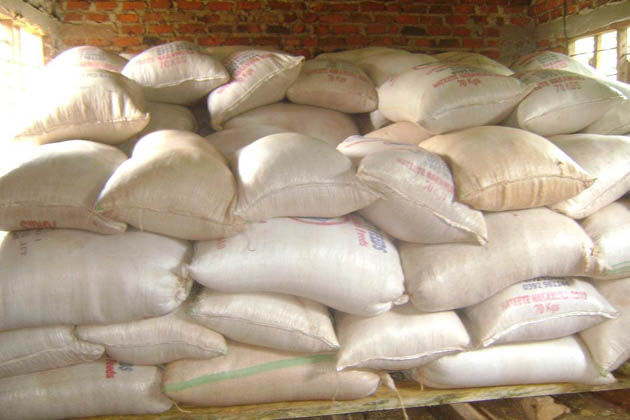By BARNABAS ZULU and MUBITA KATETE
GO Back to the Land Zambia Executive Director, Cyprian Phiri, has urged the Food Reserve Agency (FRA) to swiftly address logistical challenges and speed up payments to farmers during the ongoing maize marketing season, warning that delays could compromise both farmer livelihoods and the nation’s food security.
Mr. Phiri however commended FRA for initiating the 2024/2025 maize purchasing exercise early, calling the move a step in the right direction, particularly after what he described as a “remarkable bumper harvest” despite the lingering effects of the 2024 drought.
“As Go Back to the Land Zambia, we are encouraged to see FRA taking early action in the maize marketing season. This is a clear demonstration of support for our hardworking farmers who are the backbone of our national food system,” Mr. Phiri said.
He noted that the government’s proactive stance through the FRA highlighted its commitment to food security and smallholder farmers, many of whom had defied climate odds to produce a successful harvest.
However, Mr. Phiri expressed concern over operational inefficiencies at several FRA satellite depots, which he said were beginning to frustrate farmers.
“We are receiving reports of long queues, limited access to weighing scales, and a critical shortage of empty grain bags. These bottlenecks risk undermining what should be a smooth and farmer-friendly process,” he said. “We urge FRA to increase the number of buying points and deploy adequate functional scales, particularly in high-production zones. The immediate supply of empty grain bags is also essential. We must avoid situations where farmers are turned away or forced to go back home with unsold produce.”
Mr. Phiri also cautioned that delays in paying farmers could derail preparations for the upcoming 2025/2026 farming season.
He said that smallholder farmers relied heavily on income from their maize sales to reinvest in inputs such as seed, fertilizer, and lime.
“Quick payment is not a luxury, it’s a necessity,” he said. “Any delays in payment will negatively affect preparations for the next farming season. Worse still, it will push farmers into the hands of private middlemen who offer far less than the government’s floor price, undermining national reserves.”
He called on both FRA and the Ministry of Agriculture to adopt a “farmer-first approach”, advocating for clear timelines on maize procurement and prompt disbursement of funds.
Mr. Phiri also urged civil society organizations, agribusiness stakeholders, and financial institutions to collaborate with the government in creating an enabling environment for Zambia’s smallholder farmers.
“Our mission is to help farmers transition from subsistence to surplus. That journey requires a system that rewards productivity and removes barriers that discourage farming as a business,” he said.
He reiterated Go Back to the Land Zambia’s commitment to empowering small-scale farmers, especially women and youth, through sustainable agricultural practices, value addition, and financial literacy.
Mr. Phiri called on policymakers to ensure that logistical and financial decisions in the agriculture sector were made with the farmer’s welfare at heart, particularly as the country continued to recover from the drought and adapt to ongoing climate change.
“Every decision taken must translate into tangible benefits for farmers on the ground,” he said. “This is not the time for delays and bureaucracy. It is a time for action and delivery.”










